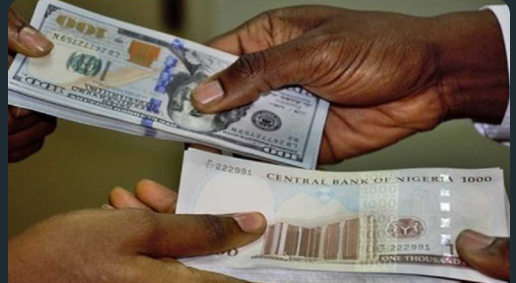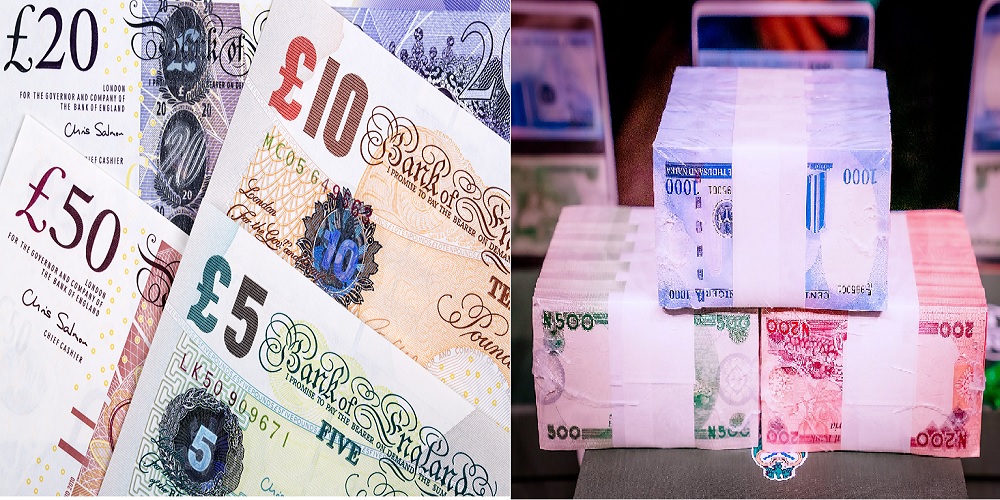Economy
Google To Link Africa, Australia With Landmark Umoja Cable

Google has announced plans to build Umoja, the first-ever fibre-optic cable directly connecting Africa with Australia.
This groundbreaking project is poised to enhance digital connectivity and economic integration between the two continents, the tech giant said in a statement on Thursday.
Anchored in Kenya, the Umoja cable will pass through several African countries, including Uganda, Rwanda, the Democratic Republic of the Congo, Zambia, Zimbabwe, and South Africa, before making its way across the Indian Ocean to Australia.
The route also incorporates the Google Cloud region in South Africa, ensuring robust cloud service connectivity.
Google said, that in collaboration with Liquid Technologies, the Umoja cable will provide a highly scalable network path, featuring multiple access points to facilitate broader regional connectivity.
This infrastructure was designed to deliver reliable and expansive digital services, addressing the chronic issue of network outages that have historically plagued the region, the search engine giant stated.
Named after the Swahili word for “unity,” Umoja is a part of Google’s Africa Connect initiative, which includes the Equiano subsea cable project.
Google said the project was made possible with partnerships from leaders across Africa and Australia, stating that the project aimed to connect African people, businesses, and governments.
Reacting to this development, the U.S. Ambassador to Kenya, Meg Whitman, said access to the latest technology, supported by reliable and resilient digital infrastructure, was critical to growing economic opportunity.
“This is a meaningful moment for Kenya’s digital transformation journey, and the benefits of today’s announcement will cascade across the region,” he remarked.
In addition to today’s infrastructure announcement, Google will sign a Statement of Collaboration with Kenya’s Ministry of Information Communications and The Digital Economy to accelerate joint efforts in cybersecurity, growing data-driven innovation, digital upskilling, and responsibly and safely deploying AI for societal benefits.
Kenyan President, Dr. William Ruto, expressed his pleasure regarding Google’s investment in digital connectivity, calling it a historic achievement for Kenya, Africa, and Australia.
He noted that the new intercontinental fibre optic route would greatly improve the country’s global and regional digital infrastructure.
“This initiative is crucial in ensuring the redundancy and resilience of our region’s connectivity to the rest of the world, especially in light of recent disruptions caused by cuts to sub-sea cables.
“By strengthening our digital backbone, we are not only improving reliability but also paving the way for increased digital inclusion, innovation, and economic opportunities for our people and businesses,” Ruto said.
Since Google opened its first Sub-Saharan Africa office in Nairobi in 2007, it has partnered with governments from countries across Africa on numerous digital initiatives.
In 2021, Google said it committed to investing $1bn in Africa over five years to support a range of efforts, from improved connectivity to investment in startups, to help boost Africa’s digital transformation.
Since then, Google has invested more than $900m in the region and expects to fulfil its commitment by 2026.
The Australian Minister for Communications, Michelle Rowland MP, said, “Diversifying Australia’s connectivity and supporting digital inclusion across the globe are both incredibly important objectives, and Google’s Umoja cable will help to do just that.
“Australia welcomes Google’s investment and congratulates all those involved in undertaking this crucial initiative.”
As part of the collaboration, Google Cloud and Kenya will announce a partnership to strengthen Kenya’s cybersecurity.
The Department of Immigration and Citizen Services is evaluating Google Cloud’s CyberShield solution and Mandiant expertise to strengthen the defence of its eCitizen platform.
CyberShield enables governments to build enhanced cyber threat capabilities, protect web-facing infrastructure, and help teams develop skills and processes that drive effective security operations.
Economy
SEE Today’s Black Market Exchange Rate: Dollar (USD) To Naira (NGN) – January 19, 2025

What is the Dollar to Naira Exchange Rate in the Black Market (Parallel Market/Aboki FX)?
Check out the latest black market Dollar to Naira exchange rate for January 18, 2025. You can exchange your dollars for Naira at these rates:
How much is the Dollar to Naira today in the black market?
The current black market exchange rate for Dollar to Naira (Aboki FX) is as follows:
Buying Rate: N1670
Selling Rate: N1680
These rates were obtained from sources at the Bureau De Change (BDC) in Lagos on Saturday, January 18, 2025.
Important Notice:
The Central Bank of Nigeria (CBN) does not recognize or endorse transactions in the parallel market (black market). Individuals looking to engage in Forex transactions are advised to approach their respective banks for official exchange rates.African fashion collections
Dollar to Naira Black Market Rate Today:
Buying Rate: N1670
Selling Rate: N1680
Dollar to Naira CBN Rate Today:
Highest Rate: N1559
Lowest Rate: N1545
Please note: Exchange rates may vary depending on location and negotiation terms, and the rates mentioned here are for reference purposes only.
Economy
Nigeria secures aircraft financing deal with Afreximbank

By Francesca Hangeior
A development financing institution, African Export–Import Bank, Afreximbank, has agreed in principle to collaborate with Nigeria on aircraft financing.
Afreximbank, while announcing plans to launch a leasing subsidiary, which will soon take delivery of 25 aircraft to be leased to African airlines, said it will provide Nigerian airlines with access to dry-leased aircraft that would enable them to better service Bilateral Air Service Agreement, BASA, routes and domestic operations.
A statement by Mr Tunde Moshood, special adviser on Media and Communications to the Minister of Aviation and Aerospace Development, Mr Festus Keyamo, said the partnership was achieved during a side meeting held with the Afreximbank team at the four-day Aviation Economic Conference in Dublin, Republic of Ireland.
The statement reads: “A significant milestone in Nigeria’s aviation sector was achieved during a side meeting held with the Afreximbank team at the ongoing Aviation Economic Conference in Dublin, Republic of Ireland. The meeting, facilitated by Boeing’s Senior Director of Finance, Lereece Rose, brought together key stakeholders to discuss aircraft financing opportunities for Nigerian airlines.
“The meeting was attended by the Minister of Aviation and Aerospace Development, Festus Keyamo SAN, who led the Nigerian delegation. The delegation included distinguished members such as the Chairman, Senate Committee on Aviation, Senator Abdulfatai Buhari; Chairman, House Committee on Aviation, Abdullahi Idris Garba, Chairman, Senate Committee on Banking, Insurance, and Other Financial Institutions, Senator Abiru Adetokunbo; Director General of the NCAA, Capt. Chris Najomo; Managing Director of Fidelity Bank, Dr. Nneka Onyeali-Ikpe; COO of Air Peace, Toyin Olajide; CEO of XEJet, Emmanuel Iza; Chairman, ValueJet, Kunle Soname and his Managing Director, Capt. Majekodunmi, and Chairman/CEO of Bellagio Air, Dr. Oludare Akande, among other aviation stakeholders.
“At the meeting, Afreximbank, led by its Director and Global Head of Project and Asset-Based Finance, Helen Brume, agreed in principle to collaborate with Nigeria on aircraft financing. Highlighting the bank’s extensive experience in supporting airlines such as Arik Air, Kenya Airways, and TAG over the past two decades, Brume emphasized the need for robust aviation infrastructure to enhance the competitiveness of African airlines.
“To address this, Afreximbank announced plans to launch a leasing subsidiary, which will soon take delivery of 25 aircraft to be leased to African airlines. This initiative aims to provide Nigerian airlines with access to dry-leased aircraft, enabling them to better service Bilateral Air Service Agreement, BASA, routes and domestic operations.
“Lereece Rose commended the Minister for his efforts in improving Nigeria’s aviation ecosystem, particularly in raising Nigeria’s Cape Town Convention score from 49.5% to 75.5 per cent. This progress underscores the country’s commitment to creating an enabling environment for aircraft financing and leasing.
“The Minister highlighted the critical need for partnerships that would enhance access to aircraft financing for Nigerian operators, facilitating growth and improved service delivery. In response, Afreximbank affirmed its readiness to work with the Nigerian government, signaling a promising future for the country’s aviation industry.
“A committee has been established to follow up on the discussions, ensuring that this partnership materializes into actionable solutions for Nigerian airlines.”
Economy
SEE Dollar (USD) to Naira Black Market Rate Today January 16, 2025 Aboki

As of January 16, 2025, the Nigerian Naira (NGN) has continued to experience some level of volatility against the US Dollar (USD), while this has been the norm for decades now, this largely to some extent reflects the ongoing economic challenges.
See the Naira performance across various currencies
A quick check at the parallel market at Abuja Zone 4 market,as at January 16, 2025 , the black market exchange rate stands firmly at approximately ₦ 1,663.00 per USD. This means if you want to buy a dollar now, it is ₦ 1,663.00 while if you want to sell it is approximately ₦ 1,652.00 .
Please be aware that the parallel market or the black market rates are mostly and notably higher compared with what you get from the official market or CBN rate
Dollar to Naira (USD to NGN) Black Market Exchange Rate Today
Selling Rate ₦ 1,663.00
Buying Rate ₦ 1,652.00
-

 News23 hours ago
News23 hours agoJust in: Gov Soludo reveals those behind kidnapping in SE, says it’s now a lucrative biz
-

 News15 hours ago
News15 hours agoFG Accepts New VAT Sharing Formula Proposed By Governors
-

 News15 hours ago
News15 hours agoFinally, court bars FRSC from arresting vehicles, penalizing motorists faded number plates
-

 News10 hours ago
News10 hours agoCLARIFICATION: Wike’s aide rubbished claim on his principal’s alleged trip to UK
-

 News10 hours ago
News10 hours agoCatholic church suspends priest over alleged secret marriage in US
-

 News10 hours ago
News10 hours agoSAD! Two Judges shot dead in Court as attacker takes own life
-

 News24 hours ago
News24 hours agoOborevwori expresses sadness over Edna Ibru’s passage
-

 News15 hours ago
News15 hours agoTrump launches his own meme coin, value soars








